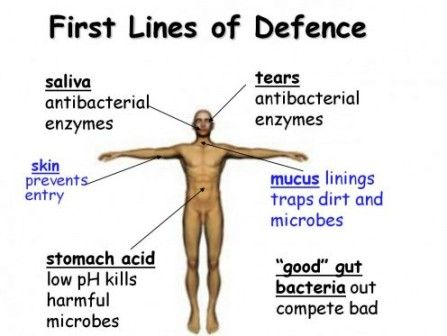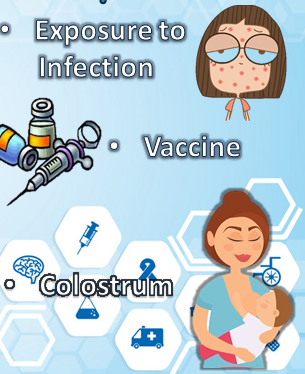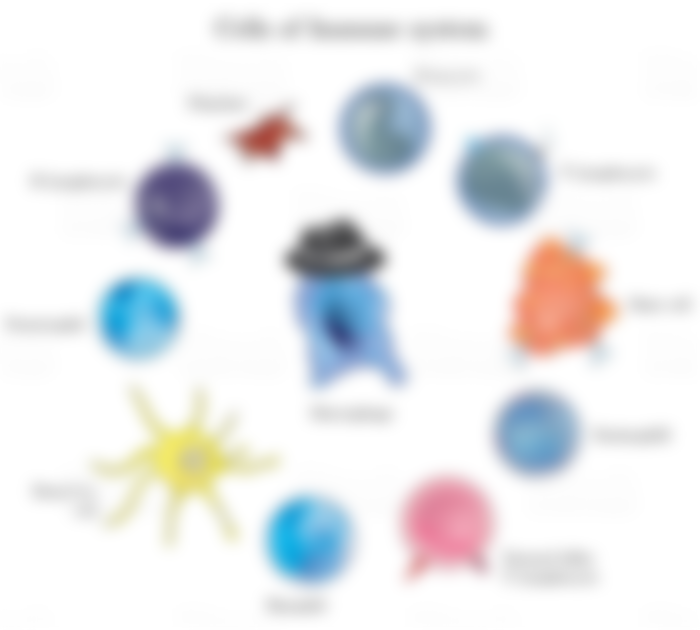Hello Everyone It's me again @Oslec08 this article is about health and the power of immune system.
Immune System
The body's defense against infectious organisms and other invaders. A complex network of cells and proteins that defends the body against infection.

2 Types of Immunity
Innate Immunity- refers to nonspecific defense mechanisms that come into play immediately or within hours of an antigen's appearance in the body. Innate means Inborn or Natural it is the first line of defense.

Adaptive Immunity- is a subsystem of the immune system that is composed of specialized, systemic cells and processes that eliminates pathogens by preventing their growth. also referred as the acquired immune system. Example: exposure to Infection, Vaccine and colostrum where our immune system adopts.

Cells of Immune System and It's Function

Platelets- The principal function of platelets is to prevent bleeding.
Monocyte- are important in the immune system's ability to destroy invaders, but also in facilitating healing and repair. Monocytes are formed in the bone marrow and are released into peripheral blood, where they circulate for several days.
T lymphocytes- play a central role in regulation of antigen-specific immune responses, by modulating the function of antigen-presenting cells, B lymphocytes, and other T lymphocytes, both through contact with (receptor binding) and secretion of cytokines and by direct killing of target cells.
Mast cell- are well placed to serve as immune sentinel cells to both respond directly to pathogens and send signals to other tissues to modulate both innate and adaptive immune responses. They serve as a first line of defense against antigens entering the body due to their location in the skin and mucosa.
B Lymphocytes- play a critical role in pathogen-specific immunity by producing antibodies.
Neutrophils- are white blood cells that play some very important roles in our innate immune system. They circulate around our body in the bloodstream, and when they sense signals that an infection is present, they are the first cells to migrate to the site of the infection to begin killing the invading microbes.
Dendritic cells- represent a heterogeneous family of immune cells that link innate and adaptive immunity. The main function of these innate cells is to capture, process, and present antigens to adaptive immune cells and mediate their polarization into effector cells.
Basophils- appear in many specific kinds of inflammatory reactions, particularly those that cause allergic symptoms. Basophils contain anticoagulant heparin, which prevents blood from clotting too quickly. They also contain the vasodilator histamine, which promotes blood flow to tissues.
Natural killer T Lymphocytes (NKT) cells- are lymphocytes that express both a T-cell receptor (TCR), characteristic of adaptive immunity, and surface receptors for NK cells, which are part of the innate immune response.
Eosinophills- functions include: movement to inflamed areas, trapping substances, killing cells, anti-parasitic and bactericidal activity, participating in immediate allergic reactions, and modulating inflammatory responses.
Macrophages- are specialised cells involved in the detection, phagocytosis and destruction of bacteria and other harmful organisms.
7 Ways You Might Be Harming Your Immune System

Stress and Anxiety
Alcohol
Smoking
Lack of Exercise
Lack of Sleep
Dehydration
Unhealthy Diet
Healthy ways to strengthen your immune system

Don't smoke.
Eat a diet high in fruits and vegetables.
Exercise regularly.
Maintain a healthy weight.
If you drink alcohol, drink only in moderation.
Get adequate sleep.
Take steps to avoid infection, such as washing your hands frequently and cooking meats thoroughly.
Take vitamin C
Don't Smoke or Stop smoking




Wow this is informative article .THANKS FOR SHARING THIS.. too much learn about immune system and i suggest to drink or eat more vit C too.